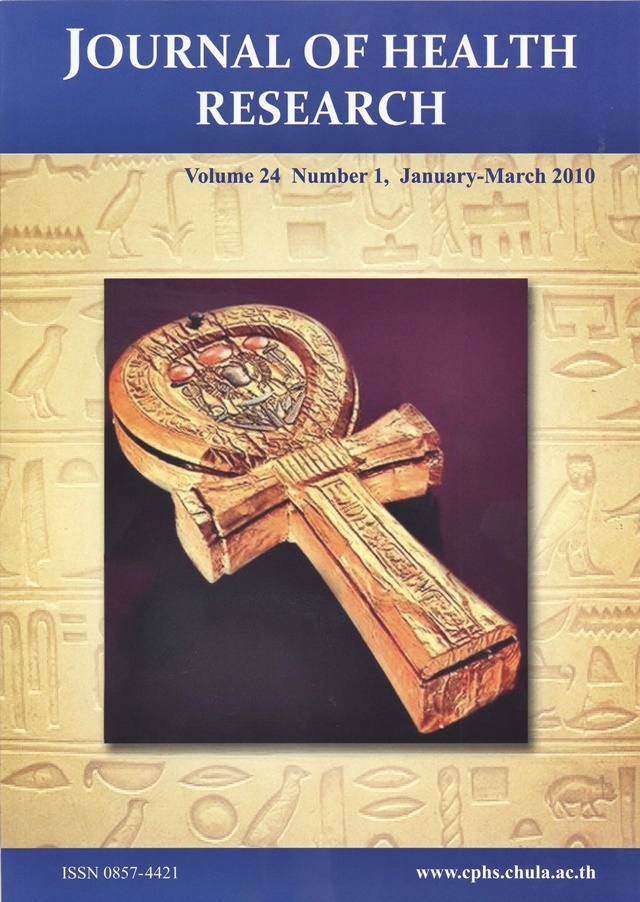Effects of Curcuma comosa Extracts on Hepatic Cytochrome P450 Activities in Rats
Keywords:
Curcuma comosa, cytochrome P450, drug interactionAbstract
Curcuma comosa Roxb. (Zingiberaceae) is an indigenous plant of Thailand. The rhizome of this plant has been widely used in Thai traditional medicine for treatment of abnormal uterine symptoms. The purpose of this study was to investigate effects of C. comosa hexane extract and ethanolic extract on hepatic cytochrome P450 (CYP) in rats. Fifty male Wistar rats were randomly divided into 5 groups (10 rats/group). Rats were given orally with C. comosa hexane extract or ethanolic extract (250 and 500 mg/kg/day) or corn oil in a control group for 30 consecutive days. At the end of the treatment, rats were sacrificed and liver microsomes were prepared. Hepatic microsomal total CYP content and CYP activity were determined. The results showed that both C. comosa hexane and ethanolic extracts at 250 mg/kg/day caused a significant increase of total CYP contents and the activity of CYP1A1. Lower dose of both extracts (250 mg/kg/day) caused a more increase of CYP1A1 activity than the higher dose (500 mg/kg/day). Also, both C. comosa hexane and ethanolic extracts caused a dose-dependent increase of CYP2B1/2B2 activities and the increase was higher in the hexane extract group than the ethanolic extract group. Hexane and ethanolic extracts of C. comosa did not affect CYP1A2, CYP2E1 and CYP3A activities. These results indicated the possibilities of C. comosa hexane and ethanolic extracts regarding herb-drug interactions and the increase risk of toxicity, mutagenesis and/or carcinogenesis from drugs or compounds that are metabolized or bioactivated via CYP1A1 and CYP2B1/2B2.







